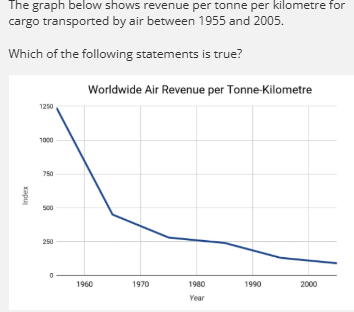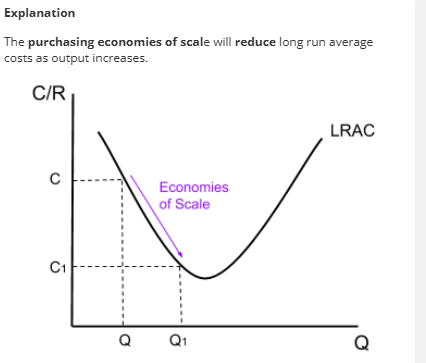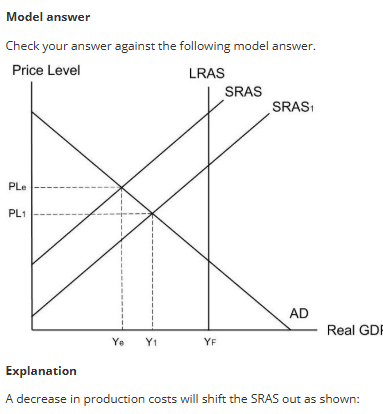theme 4.1
1/43
There's no tags or description
Looks like no tags are added yet.
Name | Mastery | Learn | Test | Matching | Spaced |
|---|
No study sessions yet.
44 Terms
globalisation
increased integration of different economies
4 characteristics of globalisation
-increased movement of labour
-increased movement of financial capital
-increased specialisation
-increased international trade
-Trade-to-GDP ratio
increased movement of labour
-international movement of labour increase significantly as globalisation increased.
-free movement of labour between countries
increased international movement of financial capital which is…
-money.
-TATA investment into foreign firm Jaguar is called Foreign direct investment.
-FDI-investment made by a firm in one country into a firm in another country to gain control over foreign firm.
One of the main ways financial capital moves across countries?
-FDI-Foreign direct investment.
FDI is an investment made by a firm in one country into a firm in another country, to gain control over the foreign firm.
Specialisation
-when a country can produce more of a good than another country it has absolute advantage
-when a country can produce a good at a lower opportunity cost it has a comparative advantage.
-Saudi Arabia specialised in oil production, oil and gas sector account for 50% of their real GDP.
International trade
Transnational Corporation- company that operates in 2 or more countries.
-Writing contracts for another transactional corporation in another company is an export of a service, because selling to another firm.
-buying a Ferrari from Italy, import of a good, buying from a foreign firm.
- 80% of international trade driven by transnational corporations.
Trade-to-GDP ratio
-show how high the value of international trade is compared to the size of a country’s economy.
-higher the ratio, more important international trade is to their economy, the more they need international trade to survive.
gross domestic product
total value of goods and serviced produced in a country over a period of time
Trade-to-GDP Ratio
Total value of international trade / GDP x 100
increase in trade-to-GDP Ratio
Increase in country’s reliance on international trade
Globalisation
Increased integration of different economies around the world.
Foreign Direct Investment
An investment made by a firm in one country into a firm in another country, to gain control over the foreign firm.
Theory of Comparative Advantage
Global output will increase if countries produce according to their comparative advantage.
4 causes of globalisation
-Improvement in transport
-Improvement in IT
-Containerisation
-Trade liberalisation
Improvement in transportation
led to the increased international movement of labour
Improvements in IT
have caused increase in international movement of capital
Containerisation
An efficient and relatively low cost system of transport that uses a common size of steel container to transport goods.
Containerisation
-Improvements in shipping
-system of transporting goods is known as Containerisation.
-has improved efficiency and reduced shipping costs over the years allowing international trade to increase.
-Containerisation has led to 790% increase in international trade
Trade Liberalisation
The reduction and removal of trade barriers.
Trade Liberalisation
Trade Barrier: restraint placed on imports.
-decrease in tariffs, decrease in cost of imports, increase in demand for imports, increase international trade.
average tariff rate is 2%

Graphs shows huge decrease in revenue received for transporting one tonne of cargo by air for one kilometre.
This shows price has decreased, so cost of air transport has therefore fallen.
Reduction in transport costs will increase the integration of global economies because trade becomes cheaper.
This will lead to globalisation
Tarrif
-tax paid on imports
A reduction in tariffs….
Tariffs are tax paid on imports.
Reduction in tariffs is a reduction in trade barriers, which makes it easier to trade.
-form of trade liberalisation, which is a cause of globalisation.
Impacts of Globalisation
-Individual countries
-Governments
-Producers
-Consumers
-Workers
-The environment
Theory of comparative advantage
Theory of comparative advantage states that the global output will increase if countries specialise in the production of goods in which they have a comparative advantage
Impacts of globalisation on individual countries
benefit: increase in living standards, down to specialisation, if countries specialise in the production of goods in which they have a comparative advantage, global output will increase.
-increase in real output, lead to increase in real world GDP, lead to increase in living standards.
-However, specialisation can lead to overdependence. The more the countries specialise the more their countries depend on the goods and services they specialise in.
-The oil and gas sector in Saudi Arabia now accounts for around 50% of their real GDP
One benefit and one cost of globalisation in Individual countries.
-One benefit of globalisation is an increase in living standards as a result of increased specialisation, which has increased global output and world real GDP.
-One disadvantage of globalisation is an increase in overdependence of specialisation.
Real GDP
measures the amount of goods and services produced in an economy in a year
Impact of globalisation on governments
-Increased in trade, lead to increase in tax revenue in tariffs which can be used ti fund government spending which has positive externalities such as education.
However, enables transfer pricing which leads to tax avoidance.
Large transnational corporations can avoid billions in tax.
-

benefit and disadvantage of globalisation on governments.
one benefit of globalisation is an increase in tax for governments.
one disadvantage of globalisation is a big increase in transfer pricing.
transfer pricing- TNCs reduce the amount of corporation tax that they pay by shifting their profits into countries with low tax rates.
Global financial integrity estimates several hundred billion dollars of tax lost through transfer pricing each year
Impact of globalisation on producers.
benefit- reduced costs through relocation.
-improvements in transport, IT, containerisation, trade liberalisation have all helped companies to relocate businesses to other countries.
e.g. apple make the processes for their iPhone in Taiwan. Do this to reduce costs due to Taiwan low labour costs.
-TNC access to larger market, more quantities of burger sold and benefit from purchasing economies of scale. quantity beef increase, cost beef decrease.
The purchasing economies of scale will reduce long run average costs as output increases.
disadvantage - globalisation helps TNCS create high barriers to entry.
These low prices mcdonald’s give give higher barriers to entry for smaller restaurants who aren’t big enough to benefit from the same economies of scale.
Therefore McDonalds undercut food producers around the world who cant keep up with their prices and close their business.

advantage and disadvantage impact of globalisation on producers.
-One advantage of globalisation is a reduction in costs through relocation.
-One disadvantage of globalisation is that transnational corporations create high barriers to market entry.
-low costs only really help TNCS.
QUICK RECAP: what is impact on globalisation on individual countries.
-The theory of comparative advantage states that specialisation according to comparative advantage will increase global output.
-Globalisation has led to increase in specialisation and a corresponding increase in global output.
-The increase in global output generally increased living standards.
-specialisation led to overdependence but this is a disadvantage and has had a negative impact on living standards.
Globalisation has made it easier to produce anywhere in the world as communication and transport is easier, cheaper and quicker.
This means companies have been able to relocate to places where production costs such as wages are lower.
Impact of globalisation on producers has reduced costs through relocation but also increased barriers to entry.
benefits of globalisation on consumers
-globalisation has led to increase in international trade, consumers get wider choice of good, led to economies of scale for producers all over the world.
-economies of scale help reduce production costs.
-increase in aggregate supply will reduce the price level as goods become cheaper
WIDER CHOICES, LOWER PRICES
However, increase in amount consumed so you want more known as Diderot Effect.
Diderot Effect-If consumers become more driven to own more stuff then there is likely to be a decrease in happiness.

advantage and disadvantage of globalisation impact on consumers
-advantage of globalisation is wider variety and lower prices for consumers,
-disadvantage is being driven to consume more can reduce consumer happiness. DIDEROT EFFECT
Globalisation impact on workers.
benefit is increase in international opportunities.
improvements in transport have led to increase in international movement of labour.
massive amount of remittance paid each year
remittance- transfer of money by a foreign worker to an individual in their home country.
disadvantage: structural disadvantage. comparative advantage and trade liberalisation have led to increased specialisation.
many manufacturing jobs have been transferred to developing countries.
structural unemployment: when the structure of the economy changes. people working in one sector may lose their jobs while another sector expands.
advantage and disadvantage of globalisation on workers
One advantage of globalisation is more international opportunities for workers.
One disadvantage of globalisation is an increase in structural unemployment.
Globalisation impact on the environment
-globalisation has increase in international trade so economies more dependent on each other.
-increase in global cooperation to fight climate change.
disadvantage- increase in international trade, increase in more transport led to increase in CO2 emissions, increased global warming.
advantage and disadvantage of globalisation impact on the environment
-One advantage of globalisation is an increase in global cooperation to fight climate change, 1990-2012 reduced CO2 emissions by 12.5%
-One disadvantage of globalisation is an increase in global warming.